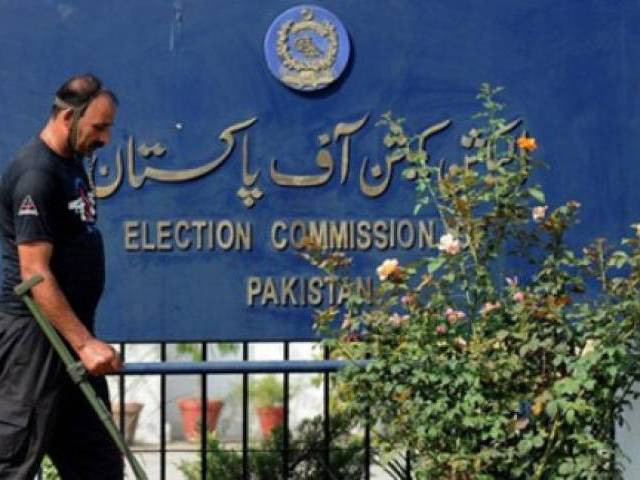LG members urge ECP to lift ban on development projects
Joint Action Committee says will challenge ECP ban in Sindh High Court

The Joint Action Committee of Sindh local councils has raised its voice against the imposition of a ban by the Election Commission of Pakistan (ECP) on the ongoing development projects in the province. This demand emerged during a meeting of the committee's representatives in Karachi on Sunday.
The Joint Action Committee was established under Section 142 of the Sindh Local Government Act 2013, uniting municipal representatives, mayors, district council chairpersons, and town elected officials from various regions, including Sukkur, Khairpur, Larkana, Shikarpur, Ghotki, Naushahro Feroze, Jacobabad, Shaheed Benazirabad, Kashmore, Hyderabad, Badin, Dadu, Matiari, Jamshoro, Mirpur Khas, Qamber Shahdadkot, Sanghar, Tando Allahyar, Tharparkar, and Thatta, as well as seven districts within Karachi.
The committee members jointly decided to file a petition in the Sindh High Court (SHC) against the ECP's ban on development schemes. Speaking to the media after the meeting, Sukkur Mayor Arslan Sheikh pointed out that Article 118 of the Constitution does not empower the ECP to halt development projects. He emphasised that such decisions fall within the ECP's discretionary powers and were not imposed during the past three elections.
Sheikh highlighted the urgent need for infrastructure repairs following last year's unprecedented rains, including damaged roads, collapsed school buildings, and compromised disposal stations. He stressed that timely initiation of development projects is vital, as the budget for these schemes has been approved by the Sindh government in February. "Any delay, even if the procedures are expedited, would result in funds being carried over to the next fiscal year in June, causing severe hardships for the people of Sindh," he added.
The committee representatives expressed its hope that the ECP would consider their concerns and promptly lift the ban on development works, offering relief to the people of Sindh. However, they also cautioned that if the ban remained in place, legal action was not off the table.
They further emphasised the challenges faced by LB officials in Karachi, who took office over a year after the LB elections, had been caught in a transitional period, and had yet to receive DDO (Drawing and Disbursing Officer) powers, limiting their ability to address public concerns. They considered the ECP ban as "discrimination against the people of Sindh".
The committee members underscored the urgency of removing the ban, as prolonged delays would lead to increased project costs due to rising inflation. They also announced plans to approach the Sindh government, the federal government, and the judiciary to bolster the authority of local bodies in Sindh.
Karachi Deputy Mayor Salman Abdullah emphasised that LB representatives had been elected based on the people's votes, putting them under pressure to address their constituents' problems and deliver results.
Representatives from other districts echoed these sentiments, highlighting that development schemes should prioritise providing facilities to the people over political considerations.
The mayors and district chairpersons from Hyderabad, Mirpurkhas, Jacobabad, and other districts called on the ECP to reconsider its decision to freeze funds for development projects in Sindh.
Published in The Express Tribune, September 25th, 2023.



















COMMENTS
Comments are moderated and generally will be posted if they are on-topic and not abusive.
For more information, please see our Comments FAQ